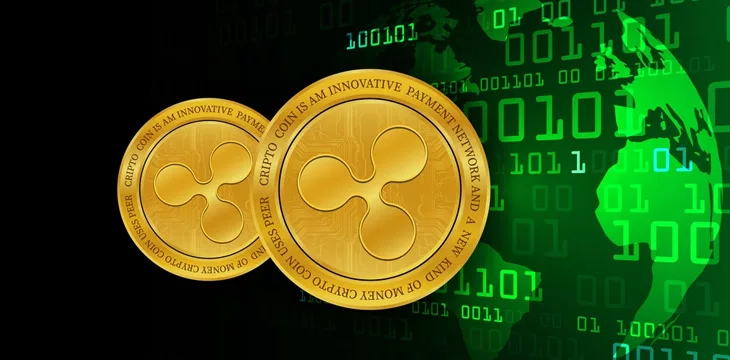|
Getting your Trinity Audio player ready...
|
The judge in charge of the Securities and Exchange Commission’s (SEC) case against Do Kwon and Terraform labs has poured cold water over last month’s ruling in SEC v Ripple, rejecting the court’s approach in that case as being inconsistent with the Howey test and suggesting that secondary sales can amount to illegal securities transactions after all.
Do Kwon and Terraform, who are being sued by the SEC for illegally offering securities, hoped to have the SEC’s case thrown out by relying on the recent ruling in Ripple in which the court found that XRP sold on exchanges via programmatic sales were not securities because the buyer could not know whether their money went to Ripple or any other third party. Due to this, the court ruled that the sales did not meet the third prong of the Howey test—the expectation of profits derived from the efforts of others.
On Monday, however, the court in the Terraform case explicitly rejected the court’s reasoning in Ripple, saying, “Howey makes no such distinction between purchasers.” As a result, the lawsuit against Do Kwon and Terraform Labs will proceed.
Secondary market sales can still amount to securities offerings, judge rules
The judge pointed out that Terraform and Do Kwon had embarked on a marketing campaign to encourage all investors to buy their digital assets, advertising that the proceeds from all sales would be fed back into the Terraform blockchain and generate returns for all holders.
“That a purchaser bought the coins directly from the defendants or, instead, in a secondary re-sale transaction has no impact on whether a reasonable individual would objectively view the defendants’ actions and statements as evincing a promise of profits based on their efforts,” the federal judge stated.
The court’s reasoning would mean that secondary market sales of digital assets can amount to securities offerings. If a digital asset company promotes its tokens on the basis that the money contributed would be used to further develop their network and increase profits for holders, it doesn’t matter whether the ultimate user purchases the tokens directly or via a secondary exchange:
“Simply put, secondary-market purchasers had every bit as good reason to believe that the defendants would take their capital contributions and use it to generate profits on their behalf.”
Fair notice defense struck down yet again
The defendants also tried their luck with a fair notice defense, which has become an indispensable part of the digital asset delinquent’s armory. A fair notice defense is available in some circumstances where a defendant can prove they lacked fair notice that their conduct violated the law. It has predictably been used by companies facing regulatory action over listing digital asset securities. The arguments generally run along these lines: the SEC has previously indicated that digital assets are not securities or, worse, given no indication at all, and therefore bringing an enforcement action over the listing of digital asset securities is without fair notice.
But of course, the SEC has never said that all digital assets are not securities. Nor does the absence of any catch-all guidance mean that defendants lacked fair notice, given the fact that the ever-flexible Howey test has been applied to new types of asset offerings for decades without incident.
“In short, defendants’ attempt to manufacture a ‘fair notice’ problem here comes down to asserting the SEC’s position in this litigation is inconsistent with a position that the SEC never adopted,” the judge said.
The judge found that the SEC has consistently expressed the position that some digital assets may fall within the regulatory ambit of federal securities laws, pointing to guidance issued by the SEC in April 2019 which warned against offering digital assets without considering whether they amount to securities.
The judge further said that even ignoring that, the fact that the SEC has already spent years pursuing digital asset companies for illegally offering securities would have provided ample notice to anyone who might have otherwise been confused by a lack of specific guidance.
Where does this leave XRP v Ripple?
The judge overseeing the Ripple case dismissed the prospect that secondary market and programmatic sales could amount to securities offerings. Still, this latest ruling in Terraform comes from a judge of equal authority. This means that until a higher court considers the issue—such as via an appeal—the judicial position concerning secondary and programmatic digital asset sales is murky.
It does, however, put the gloating by XRP that it had secured a landmark victory against the SEC in a rather humorous light.
Should this latest conception of Howey be adopted by other judges, the exact manner in which a purchaser acquired their digital assets would no longer be a barrier to a finding that the initial issuers were engaging in illegal securities offerings, even with respect to secondary market sales. What matters is what a person would have reasonably understood based on the communications of the offerors. If the person buying a digital asset from a secondary exchange would have reasonably understood that their purchase would flow back to the creators and be used to further develop the network, then that’s all that is required to meet the Howey test.
This is likely to embolden the SEC in any appeal of the ruling in Ripple. It’s also likely to embolden the SEC in any future actions it takes, where sales of digital assets on the secondary market might still yet be considered illegal digital asset securities offerings.
Follow CoinGeek’s Crypto Crime Cartel series, which delves into the stream of group—from BitMEX to Binance, Bitcoin.com, Blockstream, ShapeShift, Coinbase, Ripple,
Ethereum, FTX and Tether—who have co-opted the digital asset revolution and turned the industry into a minefield for naïve (and even experienced) players in the market.

 03-01-2026
03-01-2026 




